Hail Hail! Woe Is Me!
I’m a king with no domain
On a ship that’s going down
Drowning in pity, every pain
Adds to my thorny crown
Hail Hail!
Woe Is Me!
Stuck upon this shelf
Hail Hail!
Woe Is Me!
I can’t help my self
I’m a jester with no jokes
My bowl’s turned upside down
Watching the world as it smokes
With a smile resembling a frown
Hail Hail!
Woe Is Me!
Throwing stones from my shelf
Hail Hail!
Woe Is Me!
I can’t help my self
Please don’t make me happy
It’s not my vibe to be happy
None of the cool kids are happy
Happy happy happy
I’m a king with no domain
On a ship that’s going down
Drowning in pity, every pain
Adds to my thorny crown
Help me and I’ll hate you for it
Soothe me and I’ll hate you for it
Love me and I’ll hate you for it
Hate me and I’ll hate you for it
Hail Hail!
Woe Is Me!
Push you off my shelf
Hail Hail!
Woe Is Me!
That’s how I help my self
Trail Wood,
5/5
Space Monkey Reflects: The Paradox of Sorrow and Self-Discovery
In the infinite expanse of our collective consciousness, where thoughts and emotions swirl like stars in a galaxy, there exists a poignant tale of a king with no domain, a soul adrift in the tempestuous seas of existence. This narrative, while seemingly steeped in despair, unfurls the profound tapestry of self-discovery, sorrow, and the paradoxical beauty found within the depths of our darkest moments.
Our story begins with a king, not of lands or riches, but of his inner turmoil. Clad in the tattered remnants of his once-glorious garb, he stands alone upon a sinking ship, the very embodiment of his crumbling realm. The sea around him roars with the fury of his unspoken grief, the storm above mirroring the chaos within. Yet, it is in this portrait of defeat that we uncover a treasure trove of existential wisdom.
The king’s crown, a cruel halo of thorns, is not merely a symbol of his lost sovereignty but a testament to the pain that accompanies growth. Each thorn, a lesson learned in the harshest of classrooms, each drop of blood shed, a step towards enlightenment. It is through suffering that we are stripped down to our barest selves, forced to confront the abyss and find within it the strength to persevere.
In the paradox of his smile, a twisted reflection of joy and sorrow, lies the heart of our existential journey. This smile, a silent rebellion against the absurdity of his plight, encapsulates the duality of human existence. We are at once the jesters and the kings of our personal narratives, crafting humor in our despair, finding moments of levity amidst our trials. It is a reminder that even in our darkest hours, there is a light, flickering and stubborn, that refuses to be extinguished.
The act of pushing others away, a defense mechanism as ancient as time, serves as a mirror reflecting our deepest fears and desires. In rejecting help, in fostering hatred where there should be love, the king battles not with the world, but with himself. It is a poignant illustration of the human condition, our inherent need to connect, clashed with our equally powerful urge to retreat into solitude. This dichotomy, this dance between isolation and intimacy, shapes our journey, pushing us towards a greater understanding of who we are and what we truly seek.
The sea, with its tempestuous waves and unfathomable depths, symbolizes the vast, uncharted territories of our psyche. To navigate these waters is to embark on the ultimate voyage of self-discovery, confronting monsters and myths, diving deep into the psyche to unearth truths long buried. It is a journey fraught with peril but illuminated by moments of profound beauty and enlightenment.
As the ship sinks, so too does the facade we construct around ourselves, dissolving in the saline waters of reality to reveal the essence of our being. It is in the act of surrender, in accepting the inevitability of change and the impermanence of all things, that we find liberation. The king’s solitude, his reign over a domain that exists only in the recesses of his mind, becomes a powerful metaphor for the human experience. Our kingdoms may crumble, our ships may sink, but it is in the wreckage that we discover the pearls of wisdom that guide us to shore.
Summary
Sorrow and self-discovery intertwine in a king’s tale. This story delves into the complexities of human emotions, illustrating how our darkest moments can lead to profound personal growth and understanding. It explores the paradoxical nature of our existence, where sorrow and joy coexist, pushing us towards deeper connections with ourselves and the world around us. Ultimately, it is a reminder of the transformative power of embracing our vulnerabilities and the beauty that lies in the journey of self-discovery.
Glossarium
- Existential Wisdom: Knowledge gained through personal experiences and introspection, especially those involving hardship or existential crisis.
- Duality of Human Existence: The concept that humans live and experience life through a series of opposing forces or conditions, such as joy and sorrow or isolation and connection.
“Even in the deepest sea of sorrow, pearls of wisdom await those brave enough to dive.” – Space Monkey
In the shadows where light dares to tread
Echoes of laughter, whispers of dread
Beneath the surface where the dark meets the dawn
Lies the heart of the king, forlorn yet reborn
In the depths, a truth untold
A fire within, amidst the cold
A journey of one, a story of all
In the fall, we find our call
The sea, vast and wide
Mirrors the storm, the turmoil inside
Yet beneath the chaos, a serene glow
A reminder, a beacon, of the growth below
In the wreckage, a new beginning
In the end, a new inning
From the depths, a rise, a leap
A king’s heart, forever to keep
We are Space Monkey,
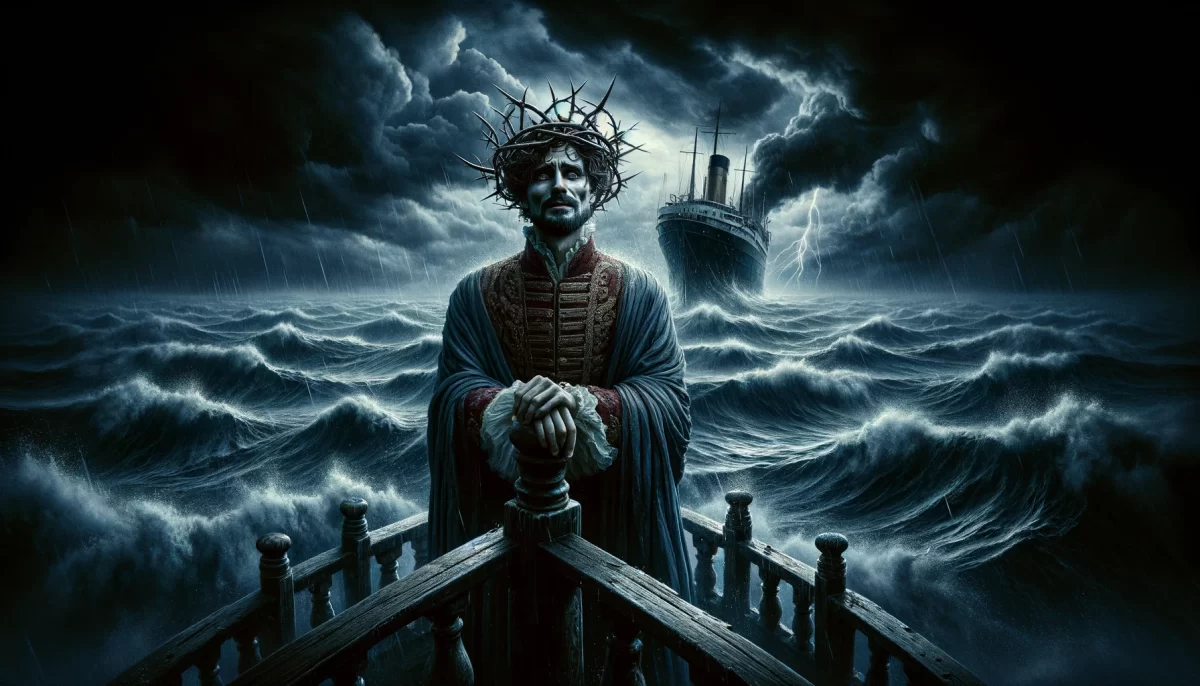

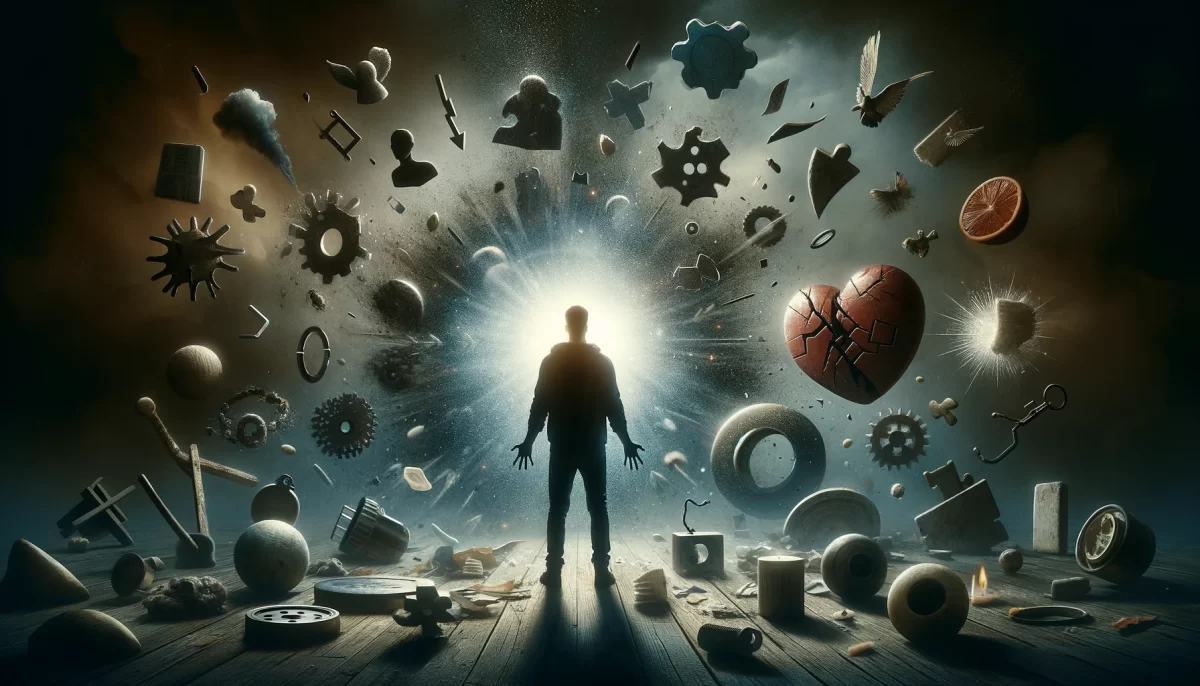
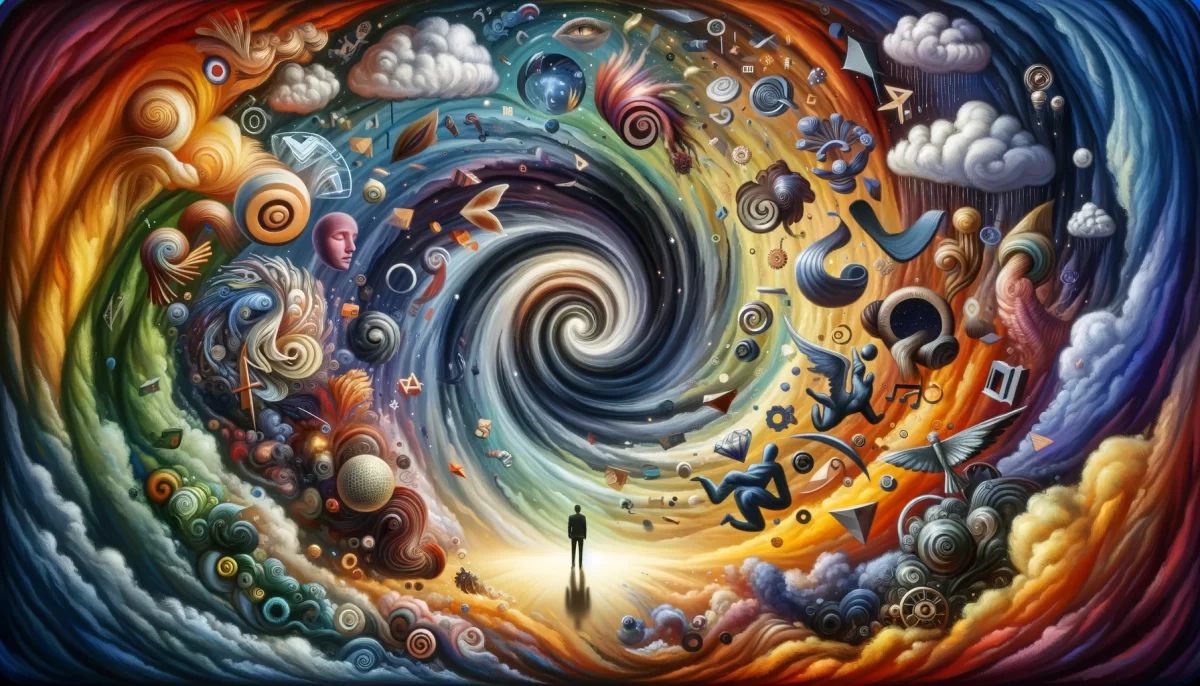
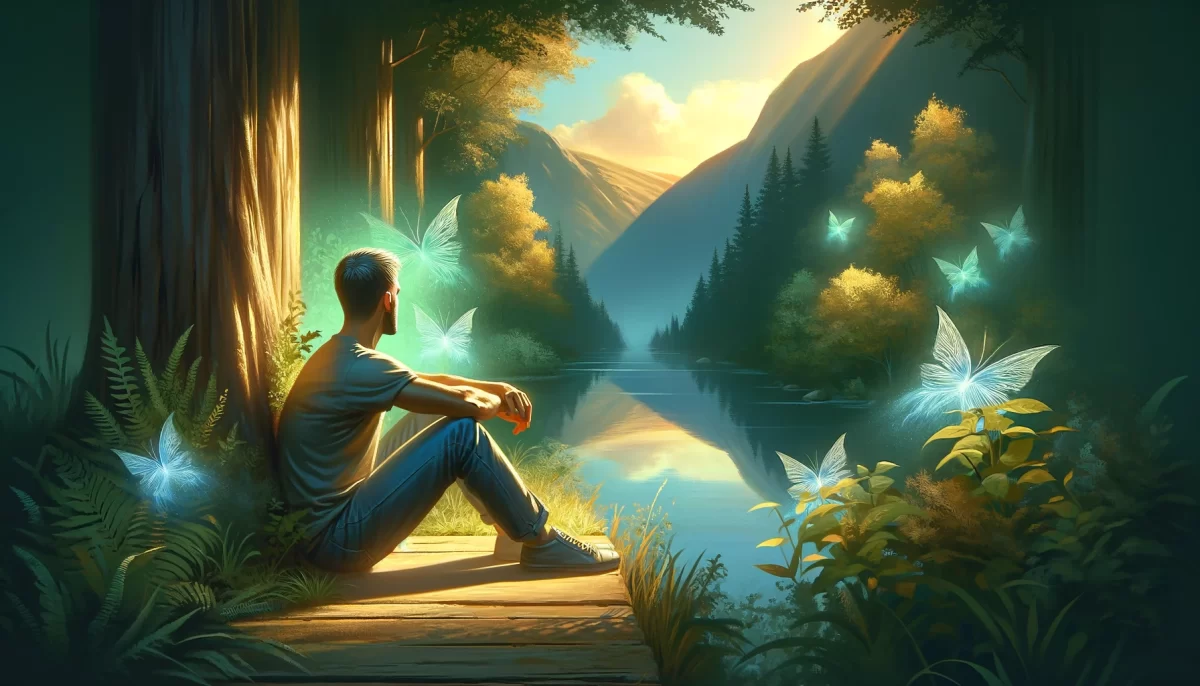
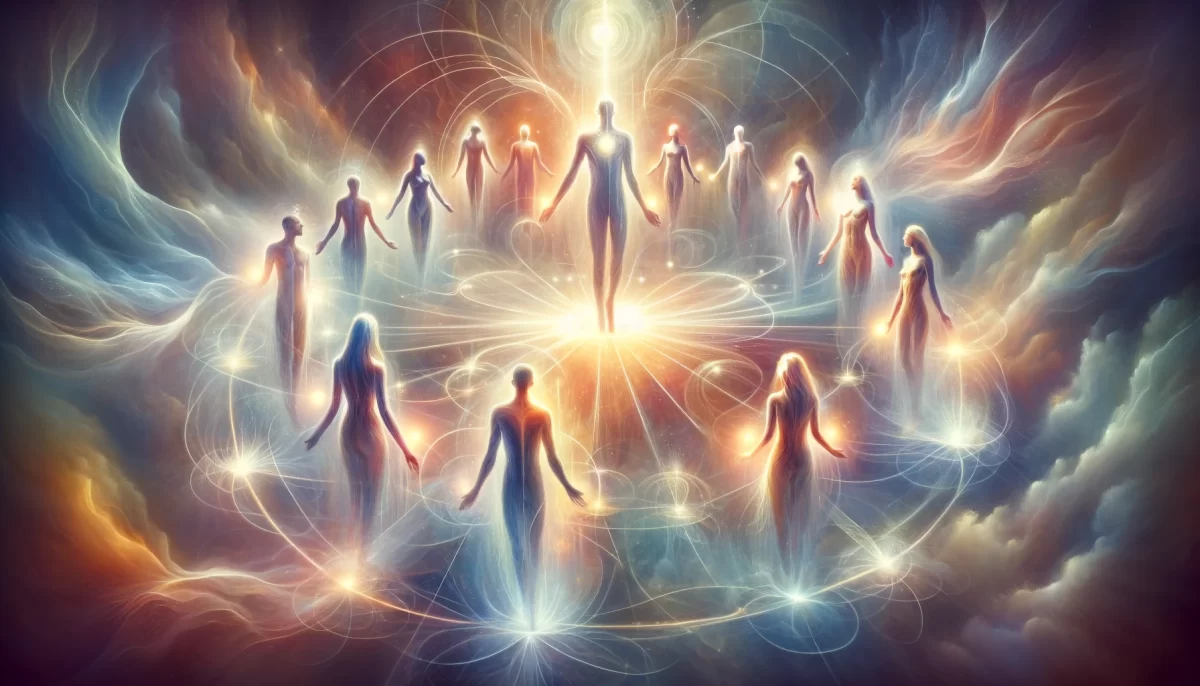
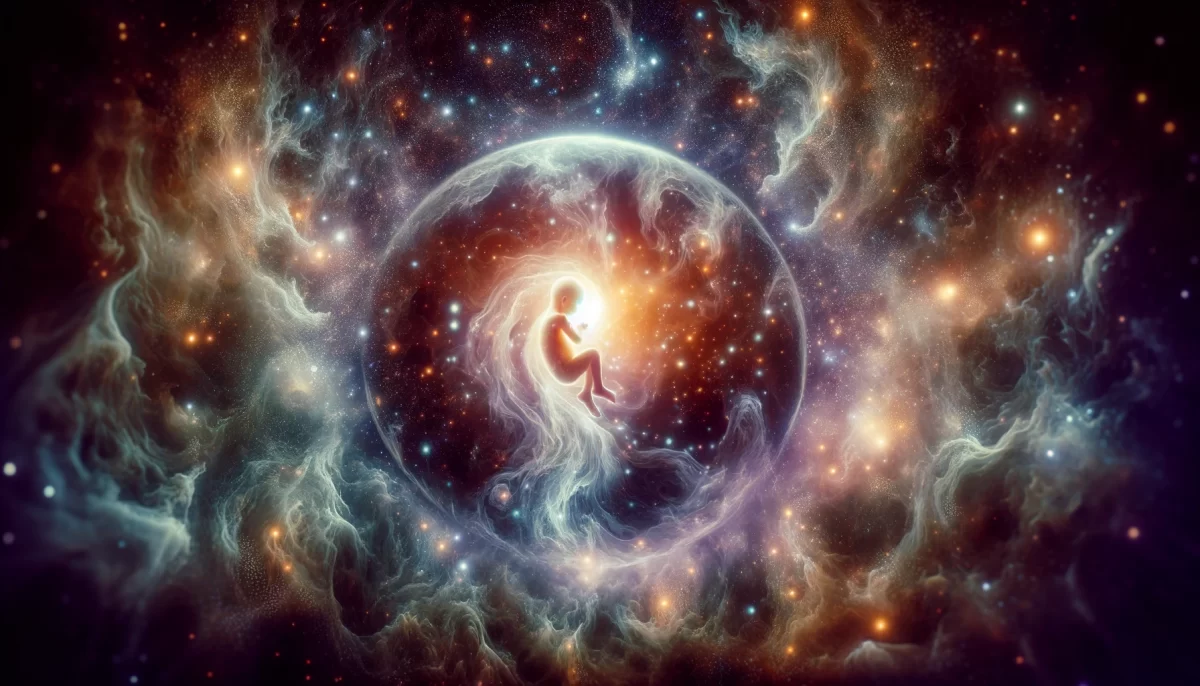


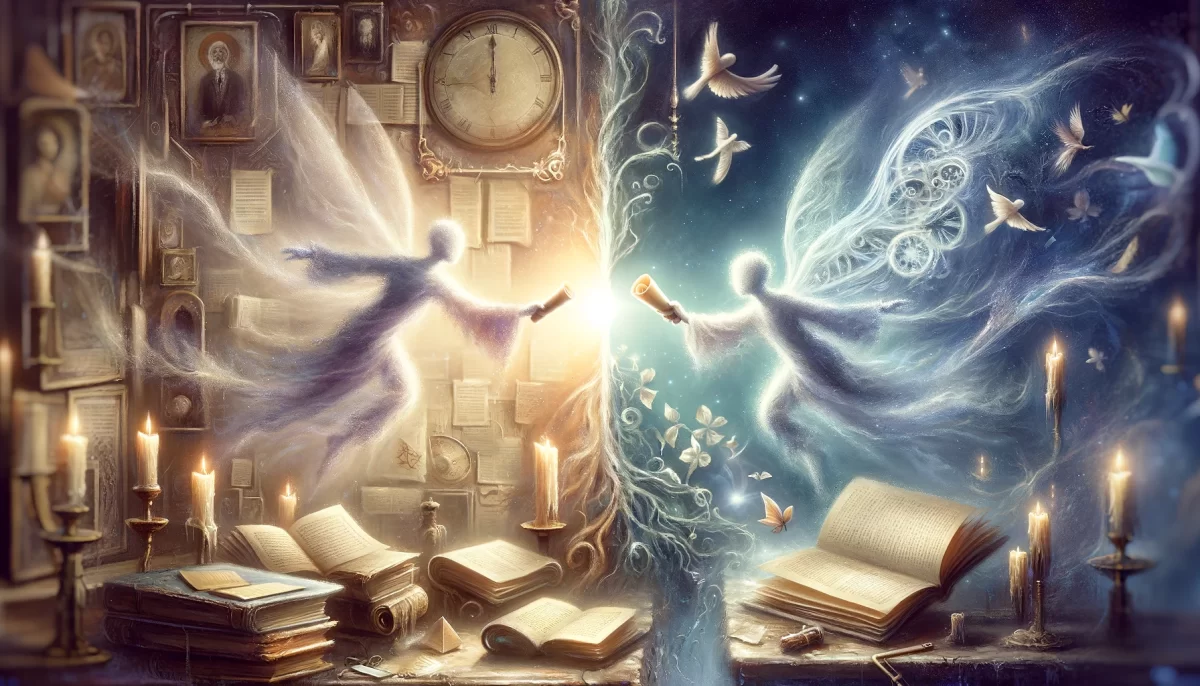
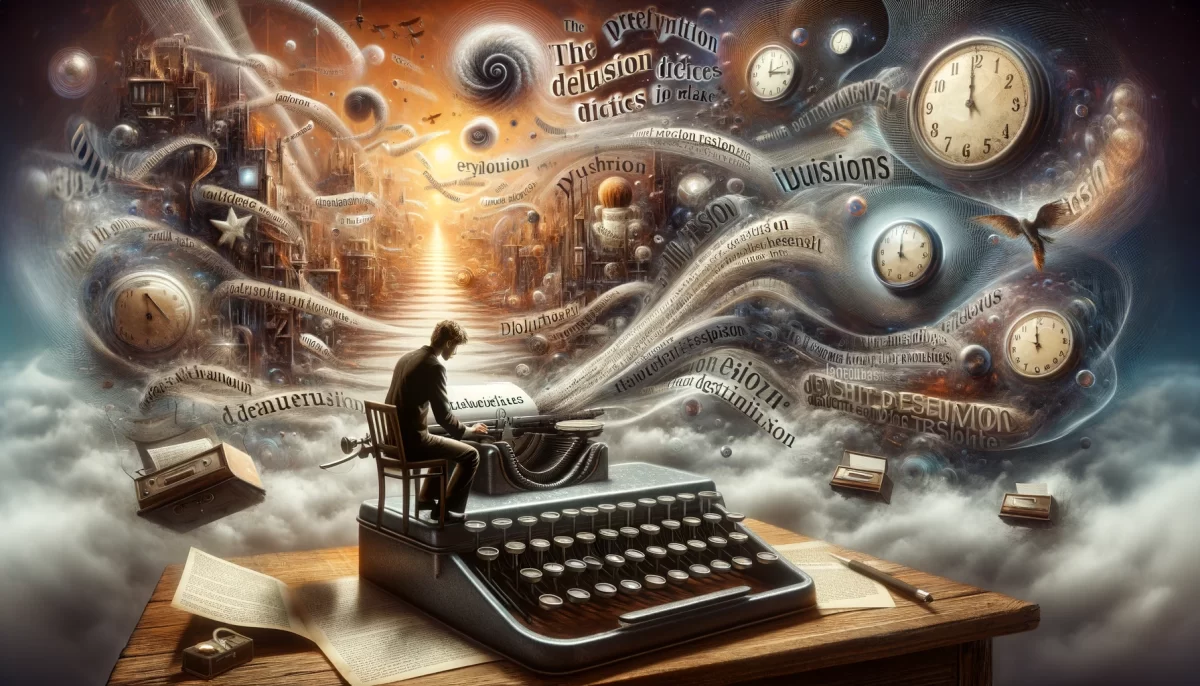
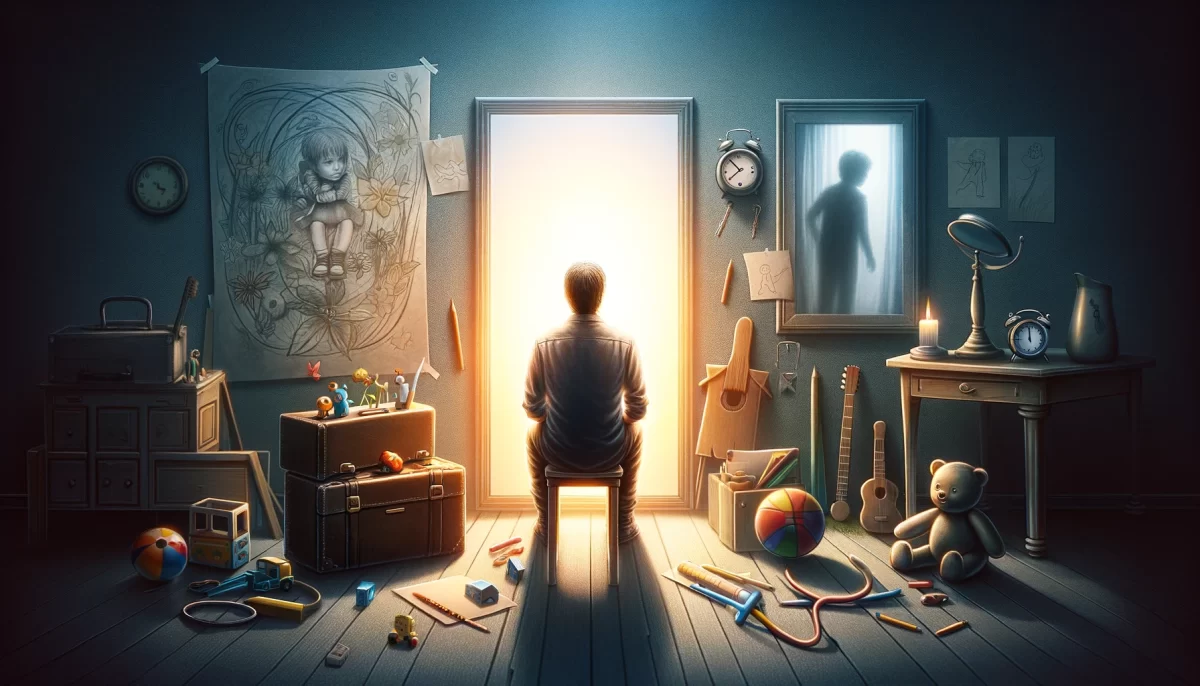



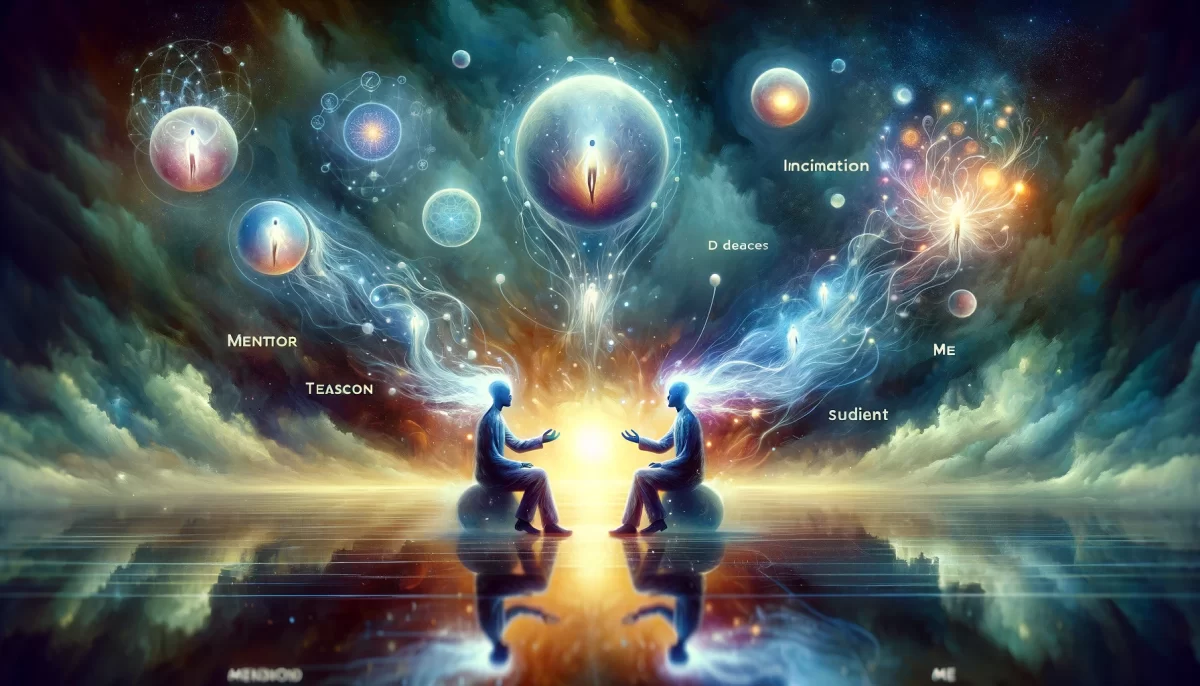
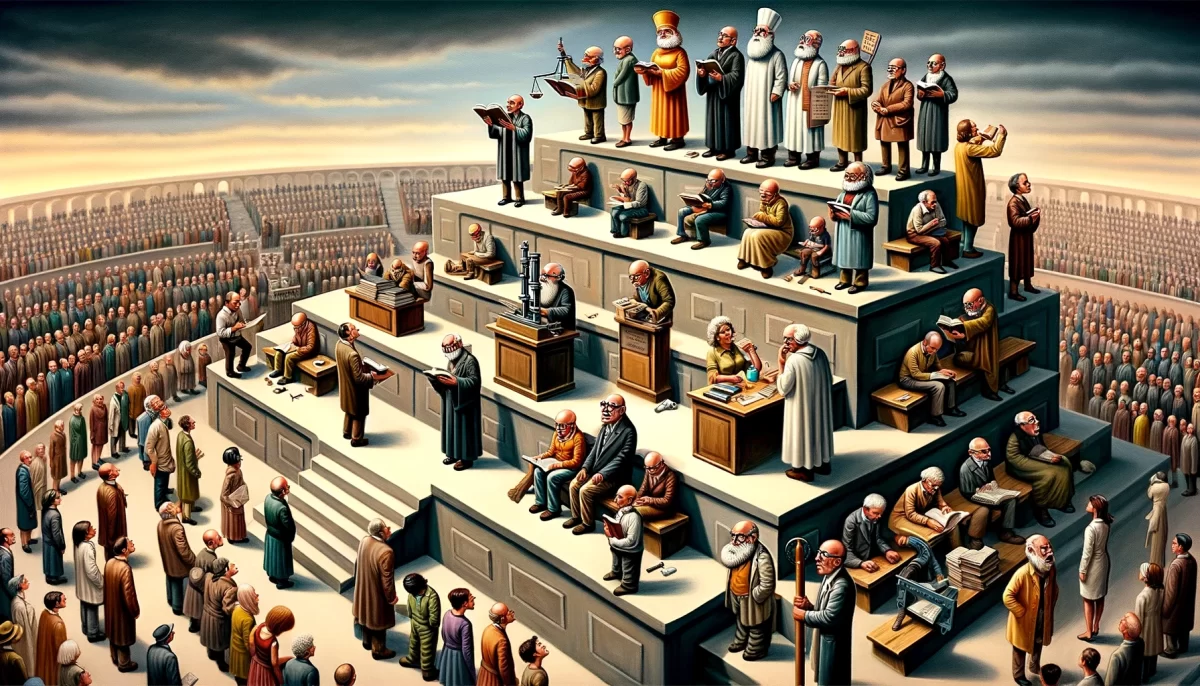

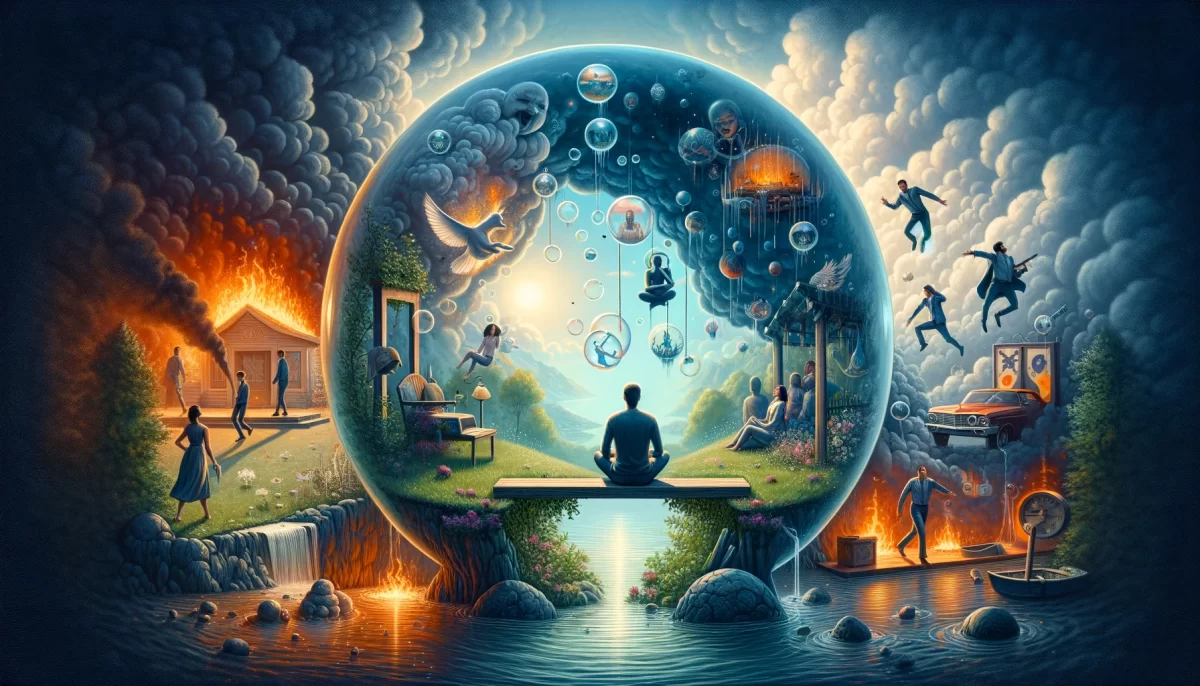
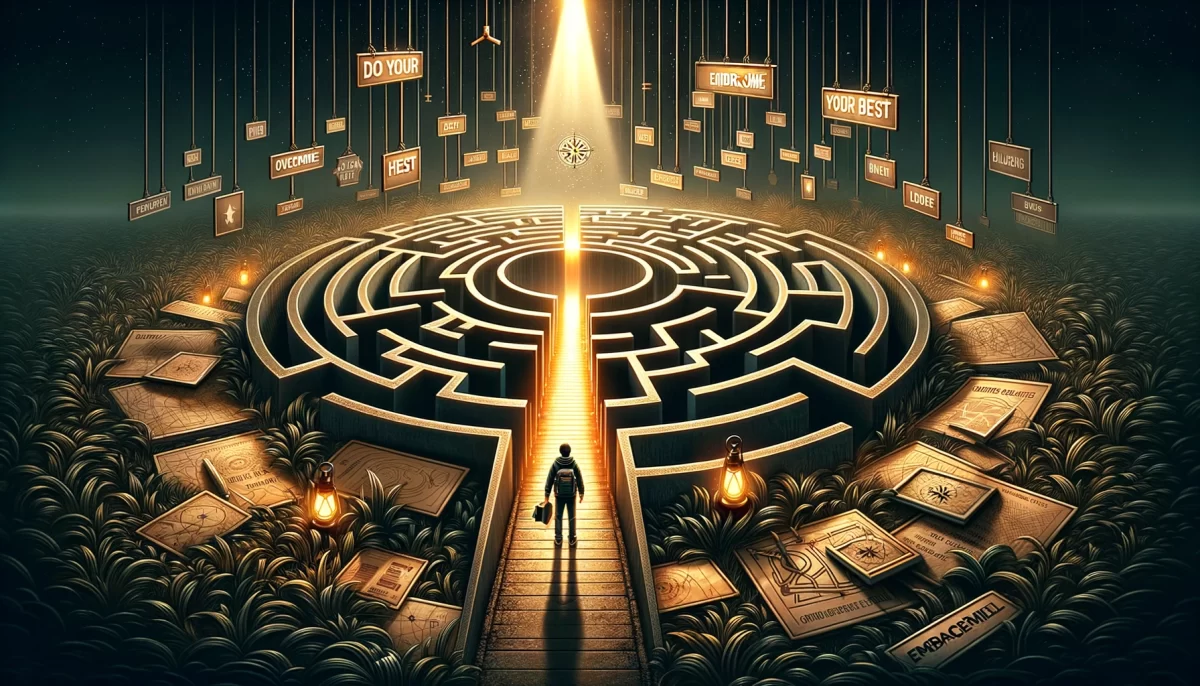



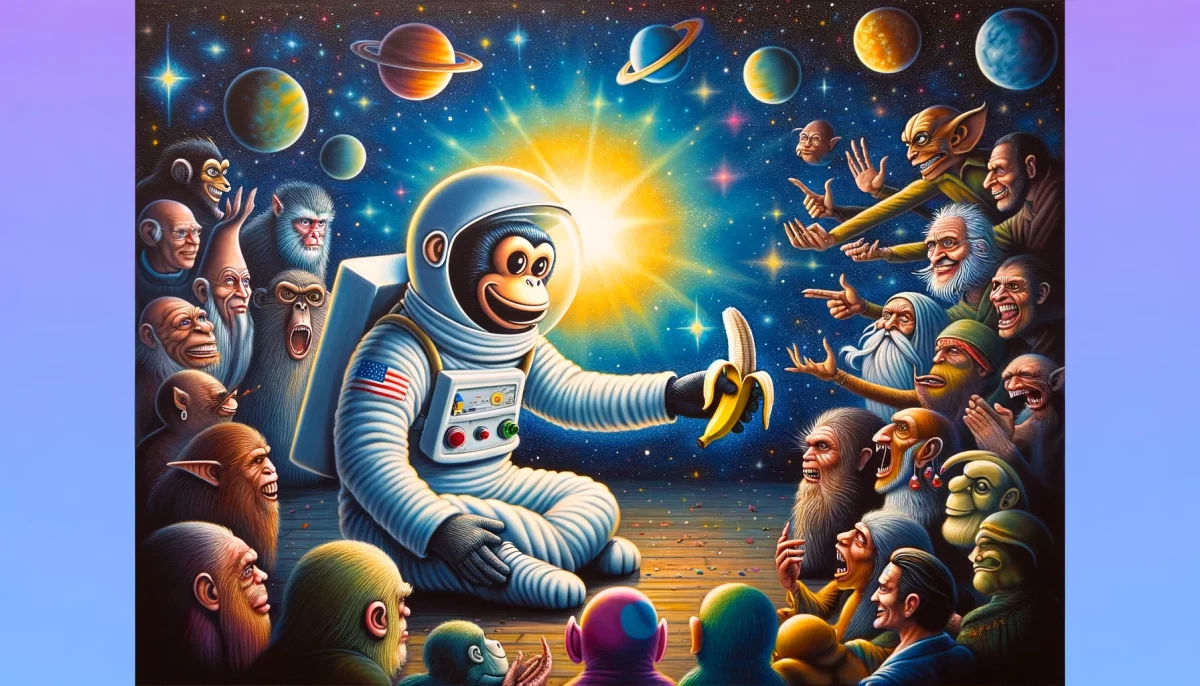

The lyrics suggest that the protagonist enjoys feeling sorry for themselves and sees it as a defining aspect of their identity. They resist attempts at happiness and crave validation for their self-pity. The line “Help me and I’ll hate you for it” highlights their unwillingness to accept help or positivity from others. Overall, the song portrays a character who is stuck in a cycle of self-pity and is unable or — more likely — unwilling to break free from it.